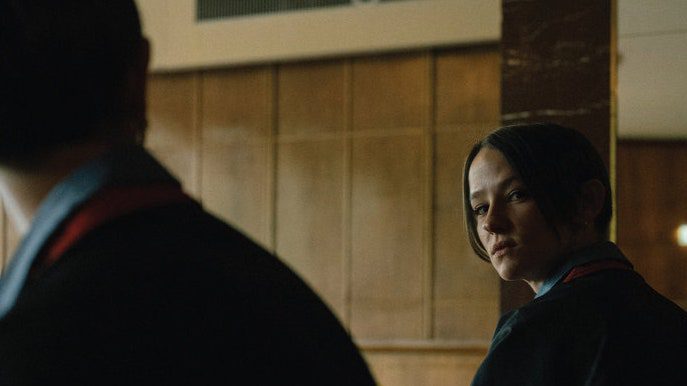
Nothing signals synthesizer psychedelia quite like the combination of an arpeggio and a delay. The arpeggio divides a chord into looping sequences of notes. The delay allows those sequences to overlap. Once set in motion, the pairing can sound like a hall of mirrors receding toward infinity. When employed by dilettantes, it’s a simple trick that gets tired fast, but in the right hands, it’s magic. Caterina Barbieri is a wizard—and she knows a lot of other spells, as well.
An Italian musician based in Milan, Barbieri has been recording since her mid twenties. Now 33, she’s ready to look back. Her latest, Myuthafoo, serves as a companion to her 2019 album Ecstatic Computation, originally on Editions Mego. Myuthafoo appears on Barbieri’s own label, light-years, which is due to re-release Ecstatic Computation. Myuthafoo follows that album’s model, managing to be tight (six tracks in just 32 minutes) and rangy at the same time. The earlier record had a broader variety, and it included vocals—or at least vocaloid sounds. Myuthafoo is more self-assured, more controlled, less goofy. (Then again, the pinging synth pop of Ecstatic Computation’s “Pinnacles of You” may just be your thing.)
In the past, Barbieri has regularly played with her voice. Last year’s Spirit Exit brought to mind masterful Auto-Tune tinkering, like if Max Headroom produced Kate Bush. Better still was Barbieri’s 2014 album Vertical, a richly gloomy outing of layered glottal intonations—Diamanda Galás’ Tuvan goth rituals put to resonant purpose by way of ambient grandmother Hildegard of Bingen.
Myuthafoo, however, dispenses with vocals entirely, and is better for it. The absence of singing brings Barbieri’s synths to the fore. Part of the wonderment of Myuthafoo isn’t just how she sequences; it’s what. The tones on “Sufyosowirl,” heard loud, are thick and syrupy—yet also utterly frictionless, leaving no sticky residue.
While many of her peers aspire aesthetically to the sympathetic minimalism of, say, La Monte Young or Michael Nyman, Barbieri has her sights set on more riotous heights. Much of Myuthafoo suggests she’d rather be the synthesizer equivalent of Franz Liszt or Sergei Rachmaninoff. This music speaks of a hunger, at times for something boisterous, rambunctious, and extroverted; at others there’s an unabashed emotional longing.
She signals this urge right at the outset, with “Memory Leak.” At just 78 seconds long, it is less a song than an overture, a fanfare. It sounds like the sort of thing a massive arena would blast as the headliner takes the stage, Klieg lights spinning and theatrical fog filling the hall.
“Math of You” is like Underworld’s “Rez” as reworked by Ryoji Ikeda. It takes the rhythmic patterning of rave music and funnels it into a form that’s precise, immersive, and generative. In place of Underworld’s unfettered abandon, we get another sort of catharsis. It may feel controlled, but so does a roller coaster. The illusion of chaos—in the sense of an ornate employment of physics—is thrilling nonetheless. “Alphabet of Light” exhibits prowess on some imaginary organ-like instrument where the notes are freed from anything resembling a keyboard and veer upward exponentially for countless octaves. You can picture Barbieri in one of Rick Wakeman’s capes, pointing toward the heavens. It can get a bit samey, but it’s never not fun. And the album closes on what could pass for a collaboration between Aphex Twin and Angelo Badalamenti, a somber pop crowd-pleaser titled “Swirls of You.”
This may seem like “headphone music”—intricate, virtuoso, open-ended—but it’s also living-room music. The fractal vapor trails and oceanic drones are all the better when they’re magnified to full size. If you sit in front of your speakers while the title track blasts, prepare to become convinced that some sort of invisible yet somatically present shimmering lattice of metallic particulate has spontaneously unspooled in the space before you. Really. For at her best, Barbieri doesn’t just make music; a wizard, she excites the air.
